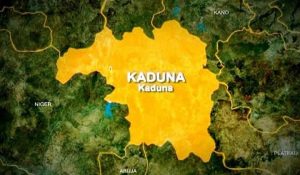The Ghana Immigration Service (GIS), a crucial agency responsible for safeguarding Ghana’s borders, managing migration flows, and contributing to the nation’s overall development, welcomed a new era of governance with the inauguration of its Governing Council on June 26, 2025. President John Dramani Mahama appointed Rev. Dr. Stephen Wengam, the esteemed General Superintendent of the Assemblies of God in Ghana, to chair this vital council. The official inauguration ceremony, held at the Ministry of the Interior in Accra, was presided over by the Minister for the Interior, Mohammed Muntaka Mubarak, marking a significant step towards strengthening the GIS’s capacity and effectiveness. The appointment of Rev. Dr. Wengam, a respected religious leader with a proven track record of leadership and community engagement, underscored the government’s commitment to ensuring the GIS receives guidance from individuals of high integrity and proven capabilities. This new council is tasked with providing strategic direction and oversight, ensuring the GIS remains a robust and effective institution capable of meeting the evolving challenges of border security and migration management in the 21st century.
The selection of Rev. Dr. Wengam as Chairman reflects the government’s recognition of the importance of diverse perspectives and experiences in addressing complex national security and development issues. His leadership within the Assemblies of God, a prominent religious organization in Ghana, demonstrates his experience in managing large and diverse groups, fostering collaboration, and driving strategic initiatives. These skills are highly relevant to the task of overseeing the GIS, which requires adept management of personnel, resources, and inter-agency collaborations to effectively secure Ghana’s borders, regulate migration, and contribute to national development goals. His appointment also signals the government’s commitment to leveraging the expertise of leaders from various sectors of society to strengthen key national institutions.
The GIS, as the primary agency responsible for managing immigration and border control, plays a multifaceted role in Ghana’s security and development landscape. Its core functions include securing the nation’s borders against illicit activities such as smuggling, human trafficking, and the movement of unauthorized persons, protecting national security interests by preventing the entry of individuals who pose a threat, and facilitating legitimate travel and trade. Furthermore, the GIS contributes to economic development by regulating the flow of skilled labor, promoting tourism through efficient visa processing, and collaborating with other agencies to ensure the smooth movement of goods and people across borders. Effective management of migration is critical for harnessing the potential benefits of migration while mitigating potential risks.
The newly inaugurated Governing Council, under Rev. Dr. Wengam’s leadership, is expected to provide strategic direction to the GIS in several key areas. These include enhancing border security through the deployment of advanced technologies, strengthening intelligence gathering and analysis capabilities, improving collaboration with international partners, and enhancing training programs for GIS personnel. The council will also play a crucial role in developing and implementing policies that promote effective migration management, ensuring that migration processes are transparent, efficient, and aligned with international best practices. Additionally, the council will oversee the GIS’s efforts to enhance its service delivery, improve public engagement, and contribute to national development initiatives.
The challenges facing the GIS are multifaceted and require a comprehensive and strategic approach. These include the increasing complexity of migration patterns, the evolving nature of transnational crime, the need for enhanced border security measures, and the imperative of balancing security concerns with the facilitation of legitimate travel and trade. The council will be instrumental in guiding the GIS’s response to these challenges, ensuring that the agency remains agile, adaptable, and equipped to effectively address the evolving security and migration landscape. This includes developing strategies to combat human trafficking, address irregular migration, and strengthen collaboration with neighboring countries to address cross-border security concerns.
The inauguration of the Governing Council marks a renewed commitment to strengthening the GIS and ensuring its effectiveness in fulfilling its mandate. The appointment of Rev. Dr. Wengam as Chairman signifies the importance of strong leadership and strategic guidance in navigating the complexities of border security and migration management. The council’s success will be crucial not only for the GIS but also for Ghana’s overall security and development. By providing effective oversight and guidance, the council can help ensure that the GIS remains a robust and adaptable institution capable of meeting the challenges of the 21st century and contributing to Ghana’s continued progress. The collective experience and expertise of the council members, combined with Rev. Dr. Wengam’s leadership, offer a promising outlook for the future of the GIS.














